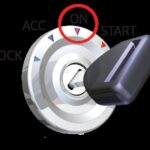Choosing the right OBD2 scanner can be confusing with so many options available. This article will guide you through the key differences between Bluetooth and wired OBD2 scanners to help you decide which is best for your needs.
Connectivity: Bluetooth vs. Wired
The core difference lies in how each scanner connects to your vehicle’s OBD2 port. Bluetooth scanners offer wireless convenience, transmitting data to your smartphone or tablet via a Bluetooth connection. Wired scanners, on the other hand, directly connect to your device using a cable. This fundamental difference impacts several key areas:
Convenience and Mobility
Bluetooth OBD2 scanners excel in convenience. Their wireless nature allows you to move freely around your vehicle while diagnosing issues. This is particularly useful when working under the hood or in tight spaces. Wired scanners, restricted by cable length, limit your movement.
Reliability and Speed
Wired OBD2 scanners generally offer a more stable and faster connection. Data transfer is less prone to interruptions, ensuring consistent communication with your vehicle’s computer. Bluetooth connections, while generally reliable, can be susceptible to interference from other wireless devices or weak signal strength, potentially leading to slower data transfer or dropped connections.
Compatibility and Software
Both Bluetooth and wired scanners rely on software applications to interpret data. Bluetooth scanners typically connect to apps on smartphones or tablets, offering a wider range of compatibility across different operating systems. Wired scanners may require specific software installations on laptops or dedicated devices, potentially limiting compatibility.
Functionality and Features
Both Bluetooth and wired OBD2 scanners can perform essential diagnostic functions, such as reading and clearing error codes, monitoring engine performance data (RPM, speed, coolant temperature), and viewing live sensor data. However, certain advanced features might be more prevalent in specific types:
Advanced Diagnostics
Professional-grade wired scanners often provide access to more advanced functionalities, such as bi-directional control (allowing you to activate components like fuel injectors), programming, and coding. While some Bluetooth scanners offer these features, they are more commonly found in high-end wired models.
Data Logging and Analysis
Both types can record data for later analysis. However, wired scanners, with their more stable connection, are generally better suited for continuous data logging over extended periods.
Cost Considerations
Bluetooth OBD2 scanners generally come at a lower price point than wired scanners, making them an attractive option for casual users or DIY enthusiasts. Wired scanners, especially those with advanced features, tend to be more expensive, catering to professional mechanics and workshops.
Choosing the Right Scanner: Which is Best for You?
The best choice depends on your individual needs and intended use:
-
For casual users and basic diagnostics: A Bluetooth OBD2 scanner offers a cost-effective and convenient solution for reading and clearing codes, monitoring basic engine parameters, and performing simple diagnostics.
-
For enthusiasts and DIYers: A mid-range Bluetooth scanner with some advanced features or a basic wired scanner might be suitable for those who perform more in-depth diagnostics and repairs.
-
For professional mechanics: A high-end wired scanner with comprehensive functionalities, including bi-directional control, programming, and advanced data logging capabilities, is typically the preferred choice.
Ultimately, carefully consider your budget, required features, and technical expertise to determine whether an OBD2 Bluetooth or wired scanner best suits your specific requirements.

